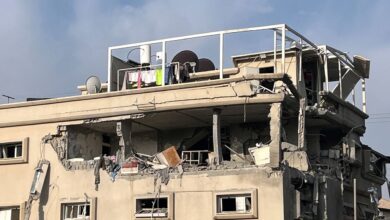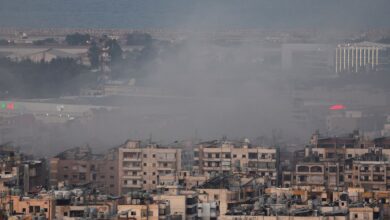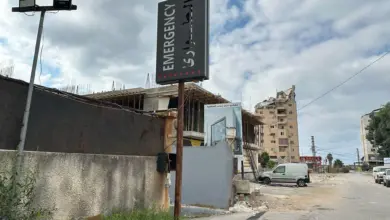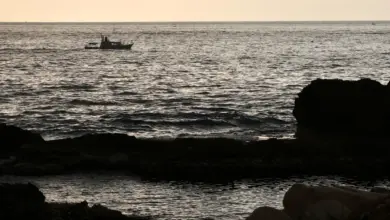Five years ago, the old man selling local music tapes and CDs in Beirut’s Hamra district ran his eyes over the shelves stuffed with colorful covers of artists’ albums.
He finally fell on Tania Saleh’s tape, in an attempt to respond to a tourist’s request, “What’s new in Lebanon’s alternative music scene?” He smiled, handed over the tape, and said in his villager’s accent, “Tanya is a real talent. She is Ziad’s [Rahbani] student. Give her a few years, and she will be a star in the Arab world.”
Five years later, Saleh’s stardom has in fact unfolded and brings her to Cairo. On the Genina stage, one of Cairo’s beautiful performance spaces overlooking the old city, she appeared with four talented musicians to open al-Mawred al-Thaqafy’s Ramadan series Hay.
Saleh’s music can broadly be described as multi-cultural, drawing on commonly recognized influences from both east and west. Featuring both elements prominently in the same songs she relays a clear attempt to bring the two worlds together.
In one of her earliest songs, Cigaretna Amrekeyye (Our cigarette is American), she juxtaposes her verbal critique of globalization against a musical dialogue between a bass guitar and a tabla performance. In this particular case, she instrumentalizes the difference in world music to add an extra layer of meaning to her lyrics.
When asked to define the genre, she chose the words “independent”, “alternative” and “Arab”. “Sometimes it’s more, but those are what I consider consistent elements,” she told Al-Masry Al-Youm.
Saleh said she is proud that her music is independent and alternative. “It’s just great to be able to say whatever you want to say and to do whatever you want to do with it. I can put my music on the internet anytime I want,” she added, while not disguising the financial hardships of not having a production company to support her work.
She prides herself in being amongst the first Lebanese artists to experiment with non-mainstream music genres after many years of civil war. The difficult re-birthing of the nation in the 1990s witnessed an explosion of novel artistic expressions. “Ziad [Rahbani] was the first to start such alternative music experiments and we followed him,” she said.
Saleh’s debut was in fact with Rahbani, when she was a backing vocalist in his seminal musicals Bi Khousous al-Karameh Wal-Shaab al-Aanid (On Dignity and Stubborn People) and Lawla Foushat al-Amal (If it weren’t for hope).
When she ventured into production of her own album, without a title and generally circulated as “Tanya Saleh”, she brought with her an innovative experience that relies equally on the aesthetics of the music and the power of the lyrics.
Words are a stronghold for Saleh and her writings are often social and political critiques of contemporary Lebanon. While they contain piercing messages, sometimes they fall prey to a tendency to consistent lamentation. The failure of politicians, the lacking sense of belonging and the identity crisis have become a common currency in contemporary artistic self-expression of post-war Beirut.
In her performance in Cairo, Saleh was quite political. She dedicated a traditional Iraqi song, re-written and re-mixed, to the occasion of the departure of the last US combat brigade from Iraq. She introduced her song Bala Man Sameeh (“There’s no need to name it”) with the comment “in Lebanon, there is no social contract”. This outspoken politicization left little room for imagination.
Nehna al-Jeel al-Jadidou (“We are the new generation”) is one song that beautifully deploys her talent and creativity in both music and lyrics. While the words themselves have an affect, the music, especially the post-script to the song proper, wanders away in a chaotic jazz style improvisation. Saleh took a walk behind her musicians, leaving the stage free for them to excel. “All the musicians I work with have something new to offer, a creative voice that they want to express,” she said.
Her changing vocal tones during the performance are an act of musical mastery which could only have been improved by slightly better diction.
Lebanese musician Essam Haj-Ali is Saleh’s close collaborator, especially in her earliest 2002 production. Back in 2003, also in Beirut, he signed one of his CDs by writing, “thanks for wanting to listen to this music and for telling the world about it.” The CD went as a gift to a friend and the friend passed it on to another friend. Today, the world is much more eager to learn more about this music. Last night’s full house at al-Genina theatre was a physical manifestation of this mounting curiosity.




